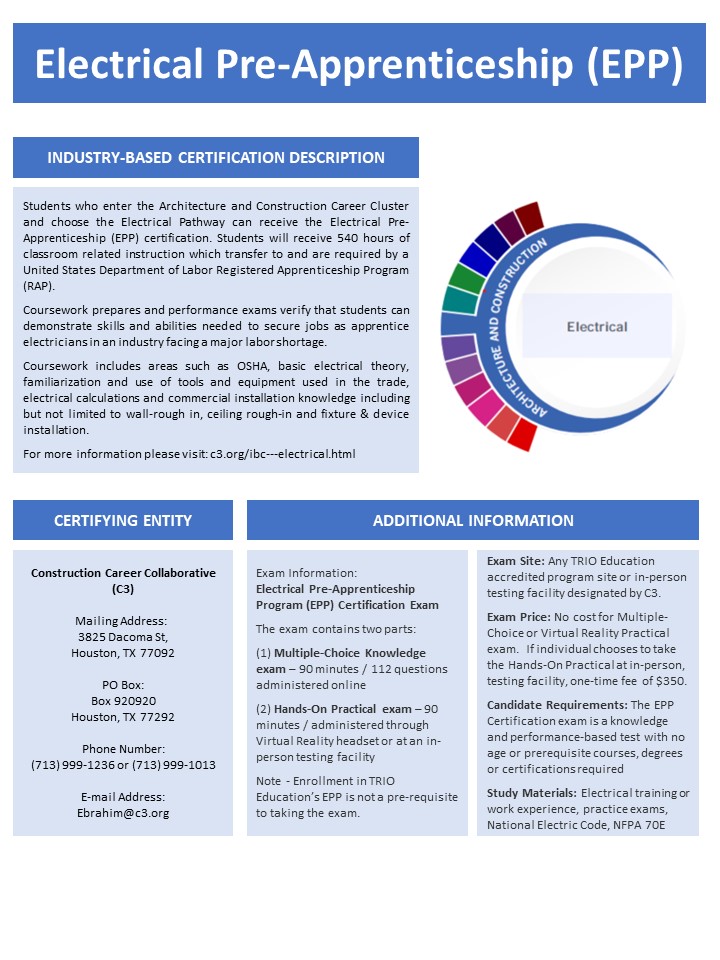Industry Based Certification
TRIO Education’s Electrical Pre-Apprenticeship Certification recognizes the accountability system schools use to establish structure where students acquire the skills and learning needed for success in business and industry. Specifically, TRIO Education’s Industry Based Certification is:
- Recognized by the United State Department of Labor (DOL) – meets elements of a quality Pre-Apprenticeship program designed to prepare individuals to enter and succeed in a Registered Apprenticeship Program (RAP)
- A Program of Study in a High School CTE Program – covers 19 TAC Chapter 130 Career and Technical Education Texas Essential Knowledge and Skills (TEKS), Subchapter B, Architecture and Construction, 130.57 Electrical Technology I & Electrical Technology II (see below for more detail)
- A Stackable Credential – students complete over 540 hours of classroom-related instruction which transfer to and are required by a Registered Apprenticeship Program (RAP.) When applicable, coursework can also be credited to a higher-education degree at community colleges (refer to Level 1 Certification for more information)
- Valuable for Industry – students can demonstrate the skills and abilities needed to become an apprentice electrician in an industry experiencing a severe labor shortage
Industry Certification Coursework:
Electrical Technology I – Students will gain knowledge and skills needed to enter the workforce as an electrician or building maintenance supervisor, prepare for a postsecondary degree in a specified field of construction or construction management, or pursue an approved apprenticeship program. Students will acquire knowledge and skills in safety, electrical theory, tools, codes, installation of electrical equipment, and the reading of electrical drawings, schematics, and specifications.
Electrical Technology II – Students will gain advanced knowledge and skills needed to enter the workforce as an electrician, a building maintenance technician, or a supervisor; prepare for a postsecondary degree in a specified field of construction or construction management; or pursue an approved apprenticeship program. Students will acquire knowledge and skills in safety, electrical theory, tools, codes, installation of electrical equipment, alternating current and direct current motors, conductor installation, installation of electrical services, and electric lighting installation.

